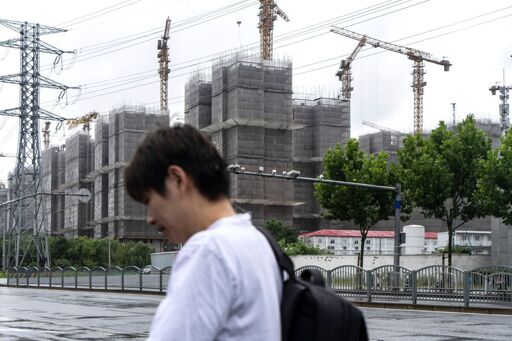cross-posted from: https://lemmy.sdf.org/post/44894752
China’s multi-year property crisis is set to drag on in 2026 and further weigh on banks’ asset quality, even after the government stepped up its stimulus push to boost demand, according to Fitch Ratings.
The country’s new home sales by area may decline 15 to 20 per cent from their current level before the sector stabilises, Lulu Shi, a director at Fitch, said at a briefing in Shanghai on Wednesday (Oct 29). Transactions by value may drop another 7 to 10 per cent next year, she added.
“China’s trickling stimulus measures did not pull the residential sector from a further slowdown,” Shi said. “A meaningful property recovery will only come after the job market stabilises and household income rebounds, which would require a basket of policies and a long period of time.”
[…]
The dim outlook for the domestic home market also means banks’ bad debt in the property segment will likely remain “elevated” next year, Vivian Xue, director for financial institutions at Fitch, said at the same briefing. That, coupled with households’ weakened ability to repay mortgages and other personal loans, means that banks’ asset quality could deteriorate next year, she added.
[…]
Fixed income-specialist Pimco has identified new risks to China’s growth strategy.
In response to China’s aggressive price discounting, many Emerging Markets economies have erected higher tariff and trade barriers on Chinese goods imports, it writes in a report.
Europe has initiated investigations into Chinese product dumping and may increase the use of quotas. The U.S. has raised tariffs on all trading partners, but especially on Chinese goods, which has limited the ability of Chinese producers to access the U.S. market at lower tariff rates through “connector” countries for final stages of production. Although markets have shown signs of optimism for U.S.–China trade negotiations ahead of the countries’ presidents meeting this week, the relationship between these two major economies will likely remain volatile.
[…]
Looking ahead, inventories can’t keep piling up forever if China wants to counter deflationary trends and maintain a stable economy. China’s policymakers have recently emphasized an “anti-involution” campaign: a nuanced approach to counter the intense competition that shrunk profit margins and to emphasize higher-quality growth and greater profitability, with a goal of reducing deflationary pressures.
However, unless Chinese policymakers are willing to more forcefully stimulate domestic demand, or tolerate slower production growth, Chinese products would need to continue to be exported at further price discounts to clear the inventory levels, Pimco says.
[…]

